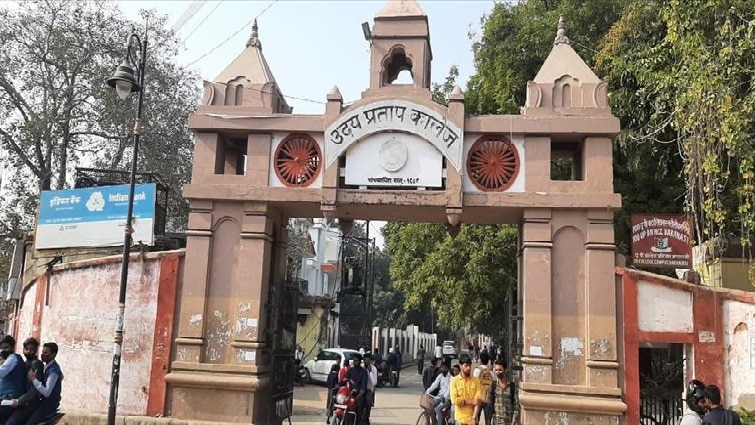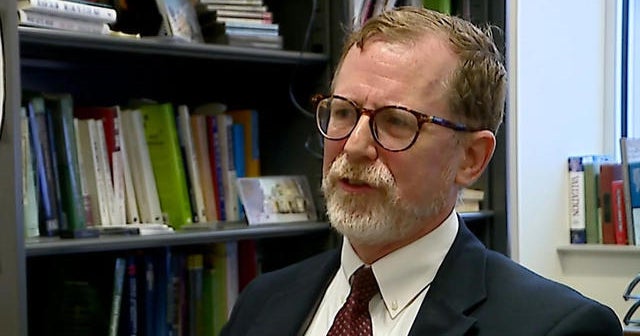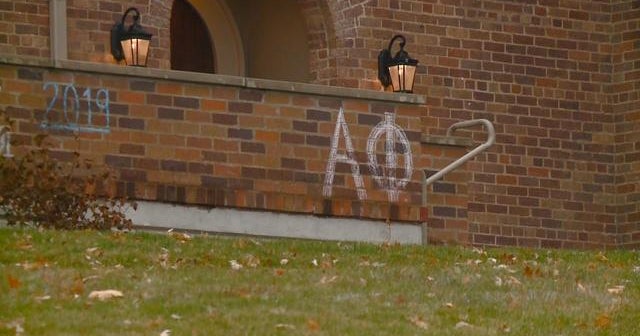The ownership dispute over the 115-year-old Udai Pratap College in Varanasi has sparked significant debate, raising complex questions about heritage, governance, and the future of educational institutions in the region. The Uttar Pradesh Waqf Board recently laid claim to the prestigious college, which has long been a cornerstone of education in the city. This claim has created ripples not only among the institution’s stakeholders but also in the broader community, stirring discussions on property rights, religious affiliations, and the role of educational institutions in India’s rapidly evolving socio-political landscape.
The Dispute: A Clash of Interests
Udai Pratap College, founded in 1907, has a rich history as an educational institution in Varanasi, known for its academic excellence and contribution to the region’s educational framework. The college has operated for over a century under various managements and ownership structures, evolving alongside India’s political and social transformations. However, recent developments have brought the institution into the spotlight in an entirely new light.
The Uttar Pradesh Waqf Board, which administers properties considered to be of religious or cultural significance, has now asserted its claim over Udai Pratap College. This claim stems from an interpretation of the college’s original land deed, which some argue was meant to be administered under the guidelines of the Waqf Act. The Waqf Act, which governs religious endowments, specifies how assets, including land, should be managed in the public interest, particularly when linked to religious institutions.
The college’s administration, along with local political and civic leaders, has rejected the claim, asserting that the college is an independent educational institution with no religious affiliations. This has triggered a legal battle, with each side presenting historical evidence to back its claim. While the Waqf Board contends that the land was designated for religious purposes, the college argues that it has operated as a secular educational body and is legally separate from any religious institution.
Historical and Legal Context
The roots of the ownership dispute lie in the complex history of land ownership in India, particularly regarding religious and educational institutions. Historically, the Waqf Board has been empowered to manage land that is either donated or designated for religious purposes. However, the application of these laws has often been contentious, particularly when it comes to institutions that have evolved over time and serve broad societal functions, such as Udai Pratap College.
In many cases, religious trusts and boards have laid claim to land on which educational and cultural institutions stand, arguing that the land was originally part of a religious endowment. On the other hand, educational institutions often argue that they are public service organizations, not connected to any particular religious ideology. In the case of Udai Pratap College, the core of the debate revolves around whether the institution’s original purpose was solely religious or whether it was intended as a secular educational body from the outset.
Another layer of complexity is added by the fact that the college has been recognized as an important cultural institution in the region. Its historical and academic significance gives the case a public dimension that extends beyond legal and religious arguments. As a result, the ownership dispute is not only a legal issue but also a matter of cultural preservation, educational rights, and community identity.
Implications of the Dispute
The outcome of this dispute could have far-reaching implications for the educational landscape in Uttar Pradesh and beyond. If the Waqf Board is granted control over the college, it could set a precedent for other religious boards to assert ownership over long-established secular institutions. This would likely lead to increased tensions between religious and educational authorities, potentially resulting in challenges for other institutions that may be at risk of losing their independence.
- Impact on Governance: A ruling in favor of the Waqf Board could lead to greater governmental oversight of educational institutions, particularly those with historical ties to religious organizations.
- Preservation of Heritage: The dispute raises critical questions about how India balances the preservation of historical educational institutions with contemporary governance structures.
- Legal Precedents: The legal battle may also influence how other institutions approach their land ownership and administrative arrangements, prompting reforms in the regulation of educational and religious properties.
Educational Impact
The college’s future is another critical aspect of the ongoing dispute. Udai Pratap College has long been a hub of learning in Varanasi, and its students, alumni, and faculty have contributed to various fields across the nation. The institution offers a range of undergraduate and postgraduate programs, with a focus on the sciences, arts, and humanities. The uncertainty surrounding its ownership and governance could disrupt its day-to-day functioning and undermine the academic environment.
If the college were to be taken over by the Waqf Board, it is unclear what the implications would be for the curriculum, administration, and management of the institution. Religious bodies have different governance structures compared to secular educational institutions, and changes in the leadership of the college could affect the diversity and inclusivity of its academic offerings. Moreover, the reputation of the institution could suffer if students and faculty perceive it as being politically or religiously influenced.
Broader Socio-Political Implications
The ownership dispute is emblematic of the broader tensions in India surrounding the role of religion in public institutions. As India grapples with the complexities of secularism, identity politics, and religious rights, cases like the one involving Udai Pratap College serve as flashpoints in the ongoing debate over the country’s future.
On one hand, the Waqf Board’s claim is grounded in the notion of protecting religious endowments and ensuring that properties designated for religious or cultural purposes are not misused. On the other hand, secular educational institutions like Udai Pratap College represent the values of inclusivity and academic freedom, which are core to India’s democratic framework.
This case also highlights the challenges faced by historical institutions in adapting to contemporary governance and legal frameworks. The intersection of religion, education, and politics in India has often been a contentious one, and this dispute underscores the delicate balance between maintaining cultural heritage and ensuring that educational institutions serve the public good without undue external influence.
Conclusion
The ownership dispute over Udai Pratap College raises fundamental questions about the governance of educational institutions, the role of religion in public life, and the preservation of India’s cultural heritage. As the case progresses through the courts, it will likely set important legal precedents that will affect not only the future of Udai Pratap College but also other institutions across the country. For the moment, the college remains at the center of a heated debate, with all sides preparing for a legal battle that could reshape the landscape of education and religious governance in Uttar Pradesh and beyond.
While the case is still ongoing, the outcome will undoubtedly have long-lasting implications for the future of Udai Pratap College and similar institutions throughout India. In the coming months, both the legal and political ramifications will become clearer, and the resolution of this dispute may provide crucial insights into the complex relationship between religion, education, and governance in India.
For more information on the ongoing legal battle and other related news, visit Uttar Pradesh Waqf Board’s official website.
See more TED Talks World



